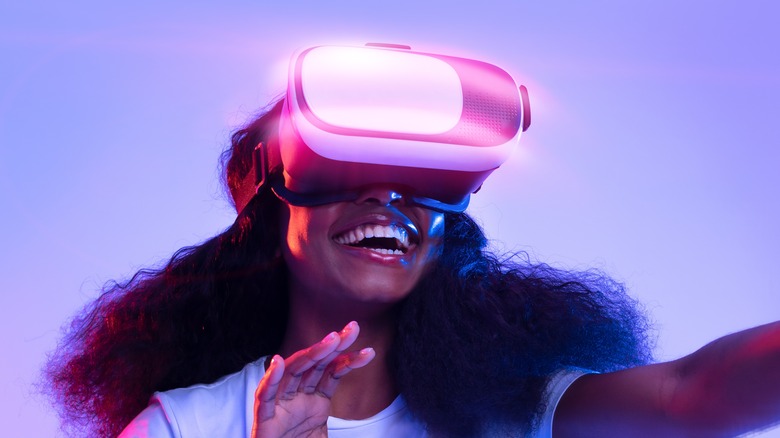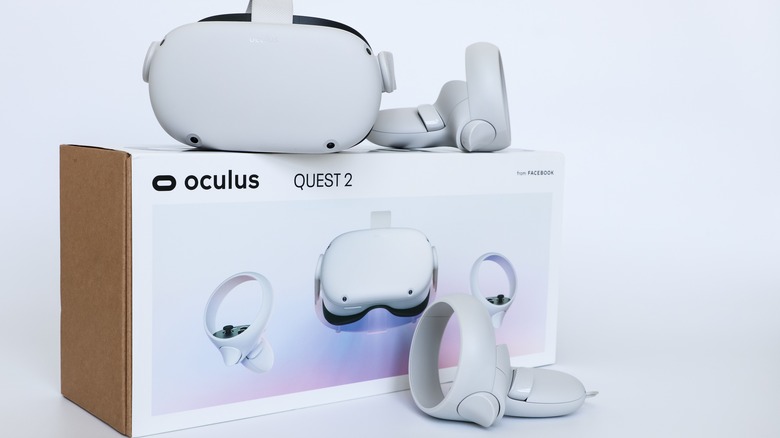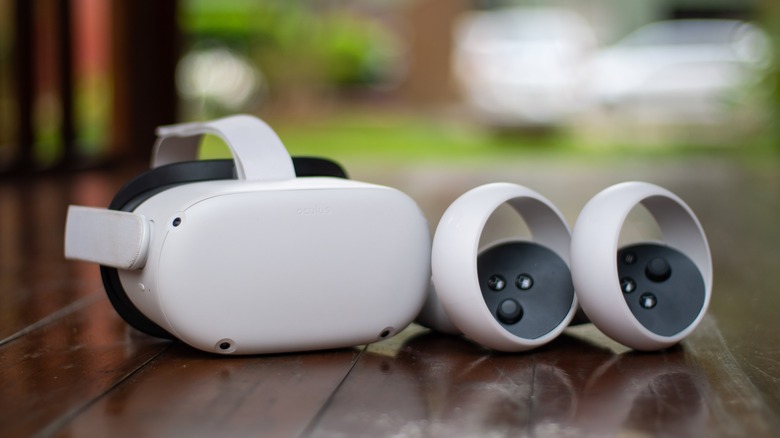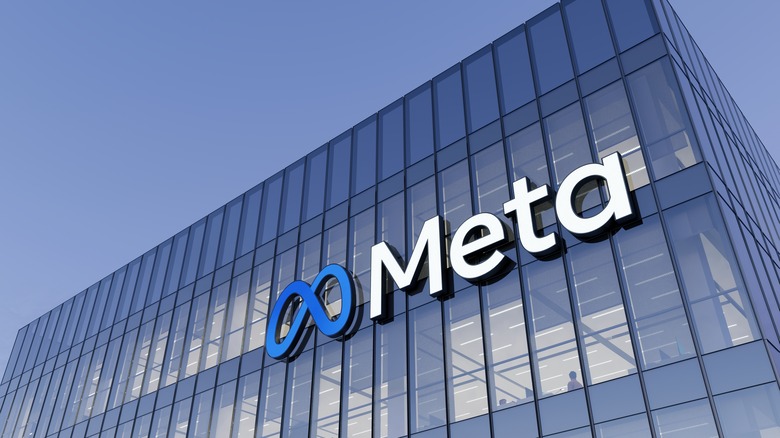Survey: A Vast Majority Of People We Polled Don't Actually Own A VR Headset
Virtual reality (VR), which is one of the newer gaming and entertainment mediums, has rapidly grown in popularity over the last decade. The concept seems to be everywhere, with major tech companies outlining ambitious hardware plans, the next version of the internet intending to make its home there, and businesses finding a functional use for many of the headsets. But just how popular is VR and how are people accessing this new universe? We surveyed hundreds of people to find out.
Up until the release of Google Cardboard in 2014, VR had some pretty hefty entry requirements. Not only would you have to spend hundreds or even thousands of dollars on a headset, but you would also need a high-end PC to have a hope of running the limited number of VR experiences available. Google Cardboard was dirt cheap and only required a smartphone — but it was also every bit as bad of an experience as you would expect a phone wrapped in some cardboard and strapped to your face to be.
Things really changed in 2016 with the release of the PlayStation VR (PS VR). Reasonable-quality virtual reality and an okay games library were now accessible, provided you owned a PlayStation 4 console. Uptake on the PS VR was good, the Oculus Go (a slightly more polished take on Google Cardboard) was keeping things accessible, and high-end headsets from Valve and HTC were pushing boundaries. You also had the original Oculus Quest, which hit the market in 2019. The Quest was high quality, standalone, and relatively cheap at $399. Its sequel, the Quest 2, came soon after, offering more power and an even lower price. Uptake spiked, but how much of a difference did it really make? Is VR still niche, or has it earned a spot amongst established entertainment mediums?
The majority of people don't own a VR headset
A total of 620 United States residents took our survey and the results were very interesting. Despite Meta and Mark Zuckerberg's best efforts, the vast majority of people SlashGear surveyed — a total of 63.06% — did not own a VR headset. Despite the uptake amongst those surveyed being less than 50%, the numbers are actually quite impressive. For comparison, according to Statista, around 53% of U.S. households own a gaming console. Console gaming has been in the mainstream for decades longer than VR, which is a relatively new format. Go back six years, and the numbers are even closer, with Statista reporting that 40% of people owned some form of games console.
Of those that did own a headset, just under half, and 14.84% overall, owned a Meta (Oculus) Quest 2. This is unsurprising given the headset's low price point and ability to function on its own. Next was PS VR, which has exactly half the number of users the Quest 2 has at 7.42%. The PS VR requires a PlayStation 4 to function, but that happens to be one of the world's most popular consoles, which balances things out a bit. If you already own the PS4, the PS VR hardware is comparable in price to the Quest 2. Next is Valve's high-end Index, which 6.45% of users reported having. The Index is an advanced piece of kit capable of tracking individual fingers but is also expensive and complex. The model costs just under $1,000 for the full kit and requires external sensors to track its users. At the bottom of the list came two of HTC's headsets: the Vive Pro at 5.81% and the Vive Cosmos Elite at 2.42%.
The Quest 2 wins the headset war
The most popular choice was the Meta Quest 2, doubling the popularity of its closest rival and having a higher uptake than the Valve Index, Vive Pro, and Vive Cosmos Elite combined. According to market intelligence firm IDC's Francisco Jeronimo, the headset had sold just shy of 15 million units as of June 2022. So what makes the Quest 2 so popular? Price is a major factor. Several outlets, including PC Gamer, speculate that the Quest 2 is being sold at a loss. Loss leaders are nothing new in business, and if Meta can subsidize its headsets long enough to both make VR a viable medium and get people tied to its platform, it could win out majorly in the long run. The $299 price tag is $100 less than the original Quest sold for, and the money gets you a more capable headset.
Another major factor is the headset's all-in-one nature. You need the headset and, at a push, your controllers (though hand tracking is an option in some cases). That's it. There are no wires needed outside of charging, and cameras mounted within the headset allow for inside-out tracking, which provides six degrees of freedom. Compare this to the competition. Aside from the sad remnants of Google Cardboard and an obscure Chinese headset, they all require additional hardware. PS VR needs a console, and everything else calls for a PC. Other PC headsets also tend to require a wired connection to the computer and are far more expensive. If you really want to get into PC virtual reality, a Quest 2 is probably still your best option. You can play wirelessly via Airlink or just use a high-speed USB-C cable. There really is no competition.
Headset uptake is likely to continue increasing
Virtual reality uptake has not stalled — far from it, it's continuing to skyrocket. IDC's Jeronimo claims VR sales grew by 97% in 2021 and 242% in the first quarter of 2022 ... and that's just with the current generation of hardware and software. Things are developing quickly and major plans are in place to take VR to the next level. Current market leader Meta has a new high-end headset scheduled for release later this year. The AR/VR headset, which has been codenamed Project Cambria, will be priced a lot higher than the Quest and act as a showcase for the company's latest VR and AR technologies. Given the price tag, Cambria is unlikely to sell as well as the Quest. However, some of its features are expected to eventually trickle down to Meta's future lower-priced headsets.
The metaverse is also central to Mark Zuckerberg's AR and VR plans. If it eventually arrives as advertised, the metaverse will be a virtual space to play games, hang out, work, trade, and partake in a multitude of other activities. Facebook's parent company isn't the only one backing the idea, though more major companies may need to come on board for it to be a success. The metaverse is being billed as the next major incarnation of the internet. In the late '80s, PCs and internet access were both pretty niche. Now the majority of people have internet access and some form of computer. VR may be the same. Then there are the other major players in the game. The most notable is Apple, which has yet to release a headset but reportedly has some high-end hardware in the works. The tech giant's headset is reportedly a highly advanced piece that could shake up the entire industry.



